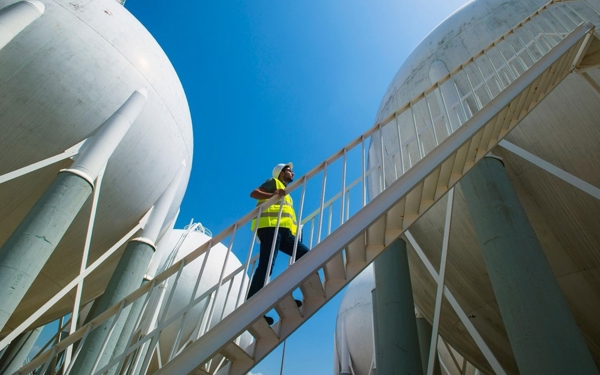A warm welcome to you all, welcome to De Nederlandsche Bank. And thank you for giving me the opportunity to come to the office on a Saturday. I must say I don’t do this very often, except on very special occasions. And this is a very special occasion. We are proud to host the Satellite Seminar of the Irving Fischer Committee on Sustainability data issues and central banks’ experience.
And I think it is rather fitting to hold this seminar on World Animal Day. Because in a way statisticians are like animals. There are many different species of you, you are essential to the economic ecosystem, but you are not always treated very well. And some of you are even under threat from some nasty examples of Homo sapiens.
So on a day like this, and also on World Statistics Day later this month, it is good to remind the world how crucial reliable data are for global progress. Good data, and good statistics based on that data, are key to making informed decisions in a complex world and a modern economy.
Now let’s zoom in a bit on the role of central banks. Central banks play an important role in providing high-quality statistics on the economy and the financial sector. That is because, as monetary authorities and often also as financial supervisors, central banks gather a lot of data. And we have the skills and the knowledge to organise, analyse, and interpret these data to draw meaningful conclusions.
In this rapidly evolving world, there is a need for statistics that are both timely and responsive to current developments. This is particularly the case for data on sustainability and climate risk. Climate change and nature degradation form a risk for financial institutions, financial stability and long-term economic development and may impact price developments. And that’s why climate change and nature degradation are well within the mandate of central banks and prudential supervisors..
There is huge demand for reliable statistics on climate risk. But sustainability data and statistics are still a relatively new field. There are still significant data gaps. For financial institutions, there are currently no global and consistent legal requirements to submit sustainability data. Reporting mandates still differ greatly in terms of stringency and scope across countries.
So the situation is not ideal. But given the urgency of the climate problem and the demand for data, we cannot wait for the perfect dataset. We need to get to work with what we have and collect and make use of existing and available sustainability data. Over the past years, many of us have gained experience in unlocking the value of these data. And today we are here to share these experiences and ideas for the future of sustainability data and statistics.
Alternative data sources can be of great value here, and looking at today’s schedule I am glad to see that multiple sources are being explored, from payment system data to data from companies’ balance sheets.
A great example of an alternative data source that I recently became aware of is PortWatch. This is an open platform designed by the IMF that uses satellite data to monitor and simulate disruptions to maritime trade flows. It turns out you can use PortWatch to simulate the effects of alternative climate scenarios on world trade. The platform shows that the impact of climate change on the economy, and therefore on the financial sector, is broad. Indeed, climate change is a many-headed monster.
On top of using alternative data sources, new data science techniques can also help generate better statistics and insights.
For example, we rely on many different data sources to create sustainable finance statistics, and these datasets often need to be combined. In many cases, a unique identifier or clear definitions are still missing. So this is quite a complex task. New data science techniques can be of great help here.
Because one thing is really important. And that is that we should aim for consistency and transparency in how data is collected and stored. Whether this means linking macro to micro data, combining reported, satellite, modelled or proxy data, or merging data from public and commercial sources. Because if we don’t, we will only make it harder to compile and harmonise statistics to enable comparison across countries.
Another example of new data science techniques is nowcasting. This is a technique that may help overcome specific challenges stemming from the dependency on data that become available only following a delay. Commercial data on carbon emissions for instance. At DNB and in cooperation with the ECB, we have therefore applied a data science technique called 'nowcasting'. Thanks to this technique we can provide more timely carbon statistics for the euro area, as users of our data have often requested.
In a world that is scaling back on corporate sustainability reporting, there will obviously be an impact on the availability of source data to compile statistics. One possible outcome is that we will need to rely more on modelled and imputed data for the time being. This makes it all the more important to base these data on transparent and harmonised methods across jurisdictions.
So, to wrap up, we need to be creative, we need to be smart, and we need to work together. And that’s also what this seminar is about. Climate change is a global problem, and there is a global need for better data. The issue is new and complex and we are all facing the same types of challenges, so cooperation is both logical and necessary. The Data Gaps Initiative is a very good example of this. Also, committees like the IFC provide a valuable platform for cooperation.
I understand this seminar is only the first stage of a true statistics tour through the Netherlands. The ISI World Statistics Congress kicks off next Monday in The Hague. But for some, a full week of statistics is still not enough. Here at DNB on the 13th and 14th of October, we will host the International Working Conference on primary emissions data at the product level.
But let’s not get ahead of ourselves. Tonight, we are taking you on a boat tour along the canals of Amsterdam. After all, somewhat in the spirit of World Animal Day, statisticians can be seen as a special kind of animal, and we do care about your wellbeing.
I wish you a wonderful day.




